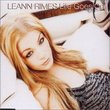| All Artists: Domenico Scarlatti, Benjamin Frith Title: Complete Keyboard Sonatas 5 Members Wishing: 0 Total Copies: 0 Label: Naxos Release Date: 1/21/2003 Genre: Classical Styles: Chamber Music, Historical Periods, Classical (c.1770-1830) Number of Discs: 1 SwapaCD Credits: 1 UPC: 636943479223 |
Search - Domenico Scarlatti, Benjamin Frith :: Complete Keyboard Sonatas 5
 | Domenico Scarlatti, Benjamin Frith Complete Keyboard Sonatas 5 Genre: Classical
|
Larger Image |
CD DetailsSimilar CDs
|
CD Reviews"An ingenious Jesting with Art:" J Scott Morrison | Middlebury VT, USA | 01/26/2003 (5 out of 5 stars) "Scarlatti's sonatas were originally entitled 'Essercizi' ('Exercises'), and their purpose was to provide musical études for the development of keyboard technique, primarily for his patroness, Queen Maria Barbara of Spain, who must have been a talented harpsichordist. In one of his published collections, he indicated that the Essercizi offer 'no profound Learning, but rather an ingenious Jesting with Art, to accomodate you to the Mastery of the Harpsichord.' And indeed these pieces are almost universally loved and admired for that very quality of wearing art lightly while providing lovely melody, interesting harmony, rhythmic variety. This, the fifth in the ongoing series of recordings of all 555 of Scarlatti's sonatas, features yet another fine pianist, Benjamin Frith, known to me only from earlier recordings from the Romantic literature (Schumann, Mendelssohn, Weber and John Field). The pianists featured in earlier volumes have been Eteri Andjaparidze, Michael Lewin, Jenö Jando, and Beatrice Long. All have been worthwhile issues, except possibly that of Ms Long, which lacked spine and spirit. This issue takes its place proudly with the other 'keepers.' They don't erase memories of Horowitz, Weissenberg, and more recently of Dubravka Tomsic. But they are musical, lively, cleanly and spiritedly played. And you can't beat the price.Recommended." Yet another interpretive take--and a fine one Eloi | Ely, NV USA | 05/16/2005 (5 out of 5 stars) "Benjamin Frith plays these sonatas more lyrically than others. That doesn't mean he lacks dynamic contrast or speed where needed, but his K 284 and K 214 are a welcome relief from the banging of Pletnev and others. And did I mention speed? K 82, a sonata that shares the toccata-like quality of K 141, though in a major key, has serious chops. The notes point out that this sonata appears in the Venice Ms. of 1742 but also in a Portuguese Ms. of c. 1720, long before the only published collection to appear in Scarlatti's lifetime, the 1738 _Essercizi_ (K 1-30). Of course, Kirkpatrick notes in his book _Domenico Scarlatti_ that his numbers only follow the order of the sources and don't really imply chronology--a point he then conveniently forgets! Assuming that Scarlatti wrote most of the sonatas in Portugal and Spain for his royal patron Maria Barbera--and even this is not certain--K 82 may well be the state of Scarlatti's music at the start of his remarkable sonata-writing binge. It's kind of humbling. The only drawback to Frith's playing is that he sometimes breaks up sections with pauses that make the piece sound choppy--an example is the first sonata on the CD, K 461. The second half opens with a wonderful and uncommon example of consistent 4-voiced counterpoint in a passage in g minor that is given an almost identical repeat in c minor. It's hard to see why Frith needs to make a break between these two passages, but he does. As always in this series, there are comparatively unknown sonatas, like the excellent K 494, as well as well-known works like K 113. Most take this sonata at a faster pace than Frith to show off--because it demands difficult hand-crossing throughout. Frith certainly doesn't play slowly, but he retains enough control to use dynamic contrast effectively in one of the best performances I've ever heard. I could say the same about the whole recording, a bargain at any price. " Poetic, lyrical Scarlatti playing Steven Eldredge | New York, NY USA | 04/22/2007 (5 out of 5 stars) "I am very happy that Naxos embarked on this project to record all 500+ of Domenico Scarlatti's sonatas, on piano, with different pianists. The series as a whole maintains high standards, while to be sure certain of the issues stand above their peers. This fifth volume, played by pianist Benjamin Frith is one such. It focuses on some very reflective sonatas, and he plays them with exquisite color, tonal control, lyricism and refinement. That is not to say he is unable to toss handfuls of lit firecrackers when the composer demands it, but even then the music seems to have space to sing and doesn't feel unduly driven.
Of the many many discs of Scarlatti sonatas I own, this one has brought me particular pleasure. I recommend it without reservation." |

 Track Listings (16) - Disc #1
Track Listings (16) - Disc #1